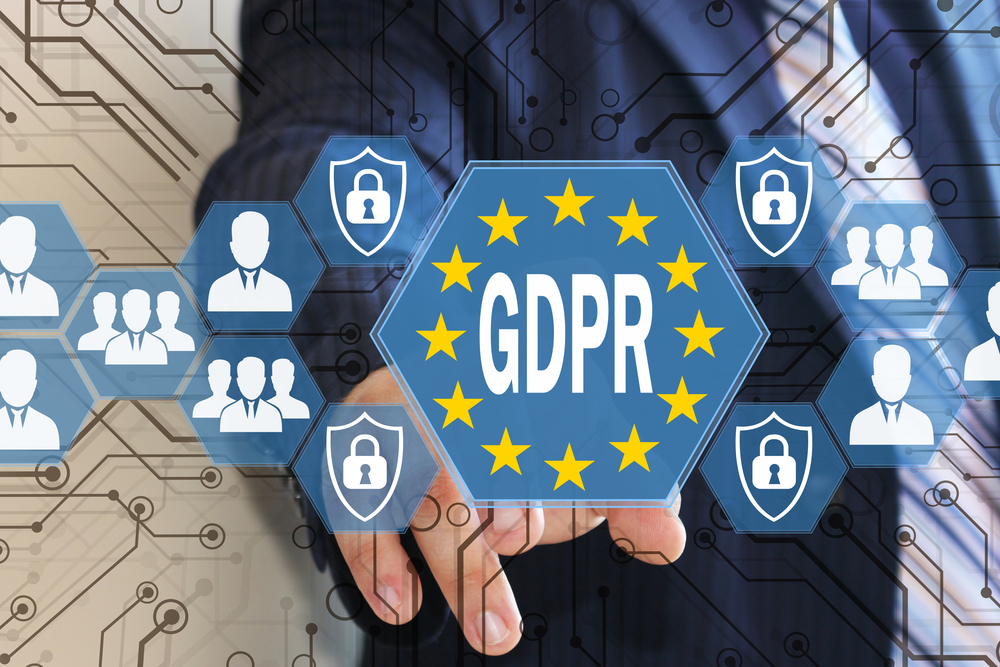
UK regulator to investigate hyperscalers' dominance of the cloud market
The UK's Competition and Markets Authority (CMA) is launching a market investigation into the supply of public cloud infrastructure services in the UK. Between them, Amazon and Microsoft enjoy a combined market share of 60-70 percent of Britain's cloud computing industry.
This follows a referral by telecoms regulator Ofcom which has expressed concerns around egress fees, discounts -- which may incentivize customers to use only one cloud provider, and technical barriers to switching.

UK businesses struggle with security budgets as cyber incidents increase
UK businesses have experienced on average 30 cyber incidents over the last twelve months, marking a 25 percent increase compared to last year.
But a new report from iomart and Oxford Economics finds that 27 percent of organizations think their cyber security budget is inadequate to fully protect them from growing threats. This is despite spending more than £40,000 ($48,000) a year on cyber protection such as vulnerability assessments, penetration testing, and red team engagements.

Business leaders worry more about ransomware than the economy
According to a new survey from Censuswide for Veeam Software, UK business leaders rate ransomware as a more significant threat to their organization (43 percent) than the economic crisis (41 percent), skills shortages (34 percent), political uncertainty (31 percent), and Brexit (30 percent).
The survey 100 directors of UK companies with over 500 employees who had suffered a ransomware attack in the past 18 months finds 61 percent are anxious about the prospect of another attack.

Over half of Brits are okay with government breaking cybersecurity law
Over half of the UK population (53 percent) would be supportive of the UK government and its allies breaking international cybersecurity law.
A new survey by Censuswide, on behalf of International Cyber Expo, also shows 45 percent have admitted they would be supportive of, or engage in online cybercriminal activity themselves, in the right circumstances.

UK schools not doing their homework on email security
As students at schools and colleges in the UK begin to return after the summer break, new research shows that 96 percent of the top 50 state secondary schools, 92 percent of the top 50 sixth-form colleges and 80 percent of the top 50 universities in the UK are lagging behind on basic cybersecurity measures, leaving students, staff and partners at risk of email-based impersonation attacks.
The research from cybersecurity company Proofpoint is based on an analysis of DMARC adoption and reveals that 70 percent of UK schools are currently taking no steps to protect themselves from domain impersonation by having no published DMARC record.

Why UK-based companies are at a crossroads with GDPR [Q&A]
Data privacy regulation, GDPR, has been in force for five years but it will soon be superseded by UK GDPR. The Data Protection and Digital Information Bill, now wending its way through parliament, will see organisations move to a UK equivalent following the country's withdrawal from the EU. But what will the change mean in practice?
We spoke to Jon Fielding, managing director of EMEA at Apricorn, to find out how UK GDPR will affect businesses and how they handle and protect data.

Does the UK really have the potential to be an AI superpower?
Earlier this year, Prime Minister, Rishi Sunak, announced his desire to cement the UK as an AI superpower. And it has been all hands on deck since then with an AI summit set to take place in November, government funds being channeled into research, and ongoing discussions around regulation. The UK is certainly determined to secure a podium position in the AI race.
It isn't difficult to understand why such high importance is being placed on AI at a governmental level. Predicted to increase UK GDP by up to 10.3 percent by 2030 -- the equivalent of an additional £232 billion -- embracing AI could hugely benefit the economy, whilst also boosting productivity and efficiency for businesses of all sizes and sectors. In the current economic climate, when all budgets are squeezed and workforces are stretched, AI has the potential to be hugely transformative. As Plamen Minev, Technical Director, AI and Cloud at Quantum, explains:

UK Electoral Commission systems breached for over a year
Systems at the Electoral Commission, the body which oversees elections in the UK, have suffered a breach exposing electoral registers which hold the data of anyone registered to vote between 2014 and 2022. The Commission’s email system was also exposed in the breach.
In a statement on its website the Commission says it identified the incident in October last year but that systems were accessed as long ago as August 2021.

Europe stays on top for broadband speeds
Comparison site Cable.co.uk has released its annual analysis of broadband speed tests around the globe.
As in last year's report Western Europe tops the regional charts with an average download speed of 118.69Mbps, with North America second on an average of 94.02Mbps.

Cyber Essentials? What's that then?
New research from Lookout finds that 40 percent of security pros have no clue about the UK Cyber Essentials framework -- the government backed program that aims to help UK organizations improve their cyber resiliency against the most common cyberattacks.
The research, carried out at Infosecurity Europe, surveyed 246 security professionals and finds only 28 percent of organizations had fully implemented Cyber Essentials. Of those that had not implemented the scheme, 58 percent say a lack of awareness or understanding is the reason why they hadn't.

Value of cybercrime equivalent to the third largest global economy
Whoever said 'crime doesn't pay' clearly did so before the advent of the internet. A new report shows that if cybercrime was a country it would be the third largest global economy, valued at $10.5 trillion by 2025. Some 33 billion records are estimated to be stolen in 2023 -- a huge increase of 175 percent from 2018.
The latest Cybercrime Statistics Report from Independent Advisor, shows that last year the cost to US businesses of an average cyberattack amounted to a huge $4.35 million. In addition, 83 percent of organisations got attacked more than once.

Majority of Brits are concerned about their digital identity and take steps to protect it
A new study of over 1,200 members of the UK public shows that 72 percent of respondents say they are concerned about the privacy of their digital identity, while 75 percent are concerned that the mobile apps they have are utilizing data to track their online and, sometimes, offline activity.
Perhaps more significant though is that 81 percent of people have bothered to read the small print and then decided to actively deny the permissions that an app is hoping to be given.

We're all techies now say enterprises
Three years on from the pandemic forcing businesses to digitize in a hurry, more and more enterprises now identify as 'tech companies.'
Research from product experience platform Pendo finds nearly 49 percent of 'traditional' enterprises in the UK now consider themselves as technology companies, and are adopting more 'tech-like' strategies, roles and tools to drive innovation and growth.

Solving the UK's digital identity dilemma
Earlier this year, a report was published in the UK with the aim of tackling the UK’s productivity and innovation crisis. Tony Blair and Lord William Hague are fronting the recommendations made, with a particular view to encourage the widespread adoption of digital ID cards. This has driven a discussion around the general public’s distrust towards government-controlled data schemes.
What’s interesting is that much of the UK population probably don’t realize just how many government IDs they already have; think tax returns, benefits, council payments and, of course, driving licenses. But even so, does this mean the UK is ready for a formal digital identity card? Many are more than happy to keep these various forms of ID in a disjointed manner, despite the inconvenience and inefficiency. Yet, the key issue here is trust, and the public needs to believe there is no overreach when they log in to a service.

77 percent of UK citizens are concerned about online privacy
A new survey shows that 77 percent of people in the UK are concerned about the privacy of their data online, but 15 percent don't do anything at all to protect themselves online.
The study, carried out for Proton by YouGov, reveals concern is even greater among those who have been a victim of a hack, or know someone who has.
